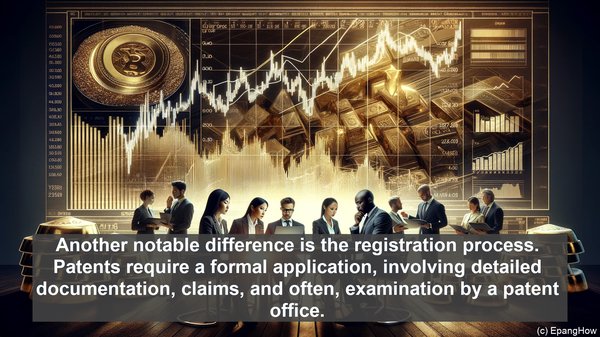Introduction: The World of Intellectual Property
Hello, everyone! Welcome to this informative article on the intriguing world of intellectual property. Today, we’ll be focusing on two key aspects: patents and copyrights. While they might seem similar at first glance, they have distinct characteristics that set them apart. So, let’s dive in!

Defining Patents: Safeguarding Inventions
A patent is a form of legal protection granted to inventors. It primarily covers novel and non-obvious inventions, be it a product, process, or design. By obtaining a patent, an inventor gains the exclusive rights to make, use, and sell their invention for a specific period, usually 20 years. This monopoly-like control incentivizes innovation, as inventors can reap the rewards of their creations.
Copyrights: Preserving Artistic Expressions
On the other hand, copyrights are geared towards creative works, such as literature, music, and art. They automatically come into existence the moment a work is created, without the need for formal registration. Unlike patents, which have a limited duration, copyrights generally last for the author’s lifetime plus 70 years. During this period, the creator has exclusive rights to reproduce, distribute, and display their work.
The Scope of Protection: Ideas vs Expressions
One of the fundamental distinctions lies in the scope of protection. Patents safeguard the underlying idea or concept behind an invention, ensuring that others cannot use it without permission. In contrast, copyrights protect the specific expression of an idea. For instance, while a patent might cover the concept of a smartphone, a copyright would pertain to the actual code, design, or artwork associated with it.
The Registration Process: Formality vs Automaticity
Another notable difference is the registration process. Patents require a formal application, involving detailed documentation, claims, and often, examination by a patent office. This process can be time-consuming and costly. In contrast, copyrights are granted automatically upon creation, without the need for registration. However, registering a copyright offers additional benefits, such as the ability to sue for infringement.

Enforcement and Remedies: Legal Recourse
In case of infringement, both patents and copyrights provide legal recourse. However, the remedies and enforcement mechanisms differ. Patent infringement often leads to litigation, with potential outcomes including injunctions, damages, or even the infringing product’s destruction. Copyright infringement, while also subject to legal action, can have additional consequences, such as statutory damages and the possibility of criminal charges.
